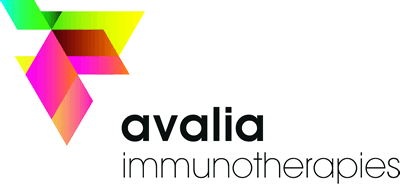Avalia Immunotherapies is fighting cancer, hepatitis, and now COVID-19
Avalia has fast become New Zealand's leader in immunotherapies and vaccine development.
Launched out of Wellington UniVentures and the Malaghan Institute of Medical Research, Avalia Immunotherapies is developing a powerful, world-first vaccine technology.
Avalia was formed after a decade-long research partnership between Victoria University of Wellington's Ferrier Research Institute and the Malaghan Institute of Medical Research. Its foundation project was a vaccine technology that stimulates the most powerful immune cells in the body, with an initial focus on developing cancer therapies.
A testament to the company's capabilities, Avalia was recently awarded funding of $100,000 from the Ministry of Business, Innovation and Employment to address the security of supply for a SARS-CoV-2 prophylactic vaccine. This grant brings together leading New Zealand science organisations and industry alongside Avalia, including the Malaghan Institute, University of Otago, Victoria University of Wellington, AgResearch and South Pacific Sera.
The funding is going towards initial research and preparations for the development, testing and manufacture of a SARS-CoV-2 vaccine for New Zealand. Avalia and collaborators are currently working with government to finalise details of their role as part of the New Zealand Government's COVID-19 vaccine strategy.
Incorporated in 2015 to commercialise its patented technology, Avalia now operates virtually with a core team of five, and more than 15 consultants and advisors supporting multiple preclinical programmes. It has expanded its patent portfolio to seven patent families and 31 pending and granted applications.
KiwiNet provided PreSeed funding in the early stages of commercialisation, to support the development of Avalia's preclinical package and strengthen its intellectual property portfolio. This gave Avalia a strong platform from which to license and partner across a broad range of applications.
"Commercialising our technology gave us the mandate to explore how it could be modified to impact different diseases, and allowed us to start developing other treatments," says Dr Shivali Gulab, CEO of Avalia Immunotherapies. "We firmly believe that despite our small size, New Zealand has a strong role to play in supporting the development of global treatments and vaccines."
Avalia has further expanded its focus from cancer therapies to develop preventative vaccines for malaria and influenza, and a treatment for people with chronic hepatitis B.
Wellington UniVentures and the Malaghan Institute of Medical Research continue to be ongoing and committed shareholders, and in 2018-19 helped the company raise significant investment, including from NZ Innovation Booster and Malcorp Biodiscoveries Limited.
The company is currently working on validating its novel immune therapy and vaccine platform in a clinical setting, placing it on a path to further accelerate its other pipeline programmes and strategic partnerships for market approvals.
Since incorporation, Avalia has raised more than $4 million in capital from investors and has received a Callaghan Innovation Project Grant and other non-dilutive funding of $2 million.
- PreSeed Accelerator Funding for early-stage development




